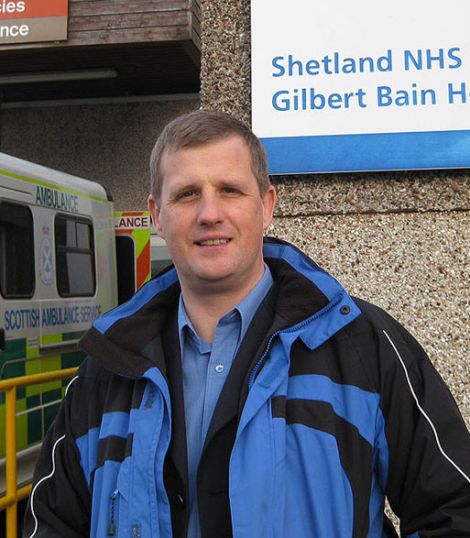News / Health board highlights trainee numbers
NHS SHETLAND has denied claims by Audit Scotland that the health board is not doing enough to plan its future workforce.
The public money watchdog said on Thursday that islands health boards could face a shortage of consultants in the future due to the rising age of staff, and that NHS Shetland had no trainees on its books.
But health board chief executive Ralph Roberts said that trainees were in the system and that they were in fact a “significant” part of workforce planning in the isles.
The figures are included in Audit Scotland’s new NHS workforce planning: The clinical workforce in secondary care report.
The report concluded that the “Scottish Government does not adequately consider long-term future health demands through its workforce planning process”.
Demand for healthcare in Shetland is expected to rise in the coming years due to its ageing population, while there has often been a chronic problem with recruiting staff.
The problem isn’t restricted to Shetland, however, with all of Orkney’s consultants being over 50 and over 90 per cent of those in the Western Isles also heading towards retirement.
The report confirmed that staff levels in Scotland are at their highest, and that spending on staff is increasing.
But it said there were “urgent workforce challenges” nationally – including the increasing and changing demand of services and difficulties in recruitment – that the Scottish Government and local health boards haven’t “effectively” planned for in the long term.
While he acknowledged local recruitment difficulties, Roberts said a “range of trainee medical staff” was “based in Shetland at any one time”.
At the moment eleven junior medical staff were based at Lerwick’s Gilbert Bain Hospital, Roberts said, including three clinical development fellows who may end up being specialist consultants.
Roberts added that the “positive aspect” of the age of the consultants is their experience, something he said was important, as they have to work across “a wide range of patient groups and specialist areas”.
Become a member of Shetland News
“We have also been extremely fortunate that over the last five years our consultant workforce has been ‘relatively’ stable, particularly when compared to the other rural and island hospitals in Scotland,” he continued.
“However, we have not been complacent and to help address this a number of years ago we agreed to increase our consultant establishment to improve their work/life balance.
“We therefore invested in this area and increased the number of both our physicians and anaesthetists from three to four and also provide regular additional input to our surgical team to cover a number of weekends.
“We have also been doing work to look at how we can make these posts more attractive in the long term.
“For example at the moment we are exploring how we can use other staff with advanced skills, for example advanced nurse practitioners, to take on some of the roles and tasks currently undertaken by doctors so that the roles are more manageable and therefore attractive.”
He said that junior doctors have “always been a key part of our medical workforce”, while the health board hopes to entice more local young people into working in the field.
“We would also be keen to work even more with local schools and universities to encourage more of our pupils to consider training in health careers because we know there is good evidence that they are then more likely to work long term in remote and rural areas of Scotland,” Roberts said.
Become a member of Shetland News
Shetland News is asking its readers to consider paying for membership to get additional perks:
- Removal of third-party ads;
- Bookmark posts to read later;
- Exclusive curated weekly newsletter;
- Hide membership messages;
- Comments open for discussion.
If you appreciate what we do and feel strongly about impartial local journalism, then please become a member of Shetland News by either making a single payment, or setting up a monthly, quarterly or yearly subscription.



























































